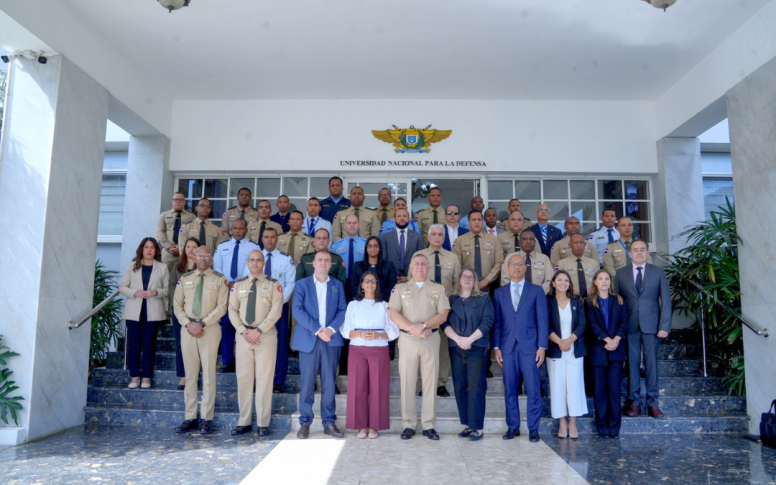The Dominican Republic continues to take important steps forward in strengthening its national response to illicit arms and ammunition trafficking. From 26 to 29 May 2025, 42 representatives from key national institutions participated in the Course on Combating Trafficking in Arms and Ammunition (CTAM), organized by the United Nations Regional Centre for Peace, Disarmament and Development in Latin America and the Caribbean (UNLIREC), in collaboration with the Ministry of Defense.
Participants included officials from the Customs Authority (DGA), the Financial Intelligence Unit, the Ministry of Foreign Affairs, the Ministry of Interior and Police, the National Police, the Public Prosecutors’ Office and various departments of the Ministry of Defense, including the Specialized Corps for Airport and Civil Aviation Security (CESAC), the Specialized Port Security Corps (CESEP), the Army Ordnance Service, the Air Force Ordnance Service, the Specialized Land Border Security Corps (CESFRONT) and the National Army. The course provided a platform for participants to share experiences and discuss the challenges they face in arms trafficking.
In his opening session, Major General Miguel Ángel Rubio Báez, Vice Minister for Military Affairs of the Ministry of Defence, emphasized that illicit firearms trafficking poses a serious threat to national security and socio-economic development. He urged participants to take ownership of their roles in combating this issue and reaffirmed the Ministry´s strong commitment to addressing the challenge.
Mrs. Ana Grisel González of the Ministry of Foreign Affairs and Mr. Melvin Asin, Head of Cooperation at the Delegation of the European Union to the Dominican Republic, highlighted the country’s adoption of both, the Caribbean Firearms Roadmap and the Central America and Dominican Republic Firearms Roadmap.
UNLIREC Director Soledad Urruela noted that the course aimed to equip national authorities with technical knowledge and tools necessary to prevent and combat illicit arms and ammunition trafficking, in line with international instruments adopted by the Dominican Republic. She underscored the importance of implementing effective and comprehensive strategies across the region.
The course covered critical topics, including trends in illicit arms and ammunition trafficking, methods of illicit manufacturing, the importance of control systems and documentation in international transfers, and measures to prevent illicit brokering. It also covered procedures for international cooperation in trafficking cases.
Expert contributions enriched the course content. CESFRONT presented recent progress in firearms control and efforts to combat diversion and trafficking. The United Nations Office on Drugs and Crime (UNODC), in collaboration with the Nacional Financial Intelligence Unit, explored links between money laundering and arms trafficking. The Central American Integration System (SICA) shared insights from recent joint operations and emerging trends in the region.
The delivery of the course was made possible with funding from the European Union.


